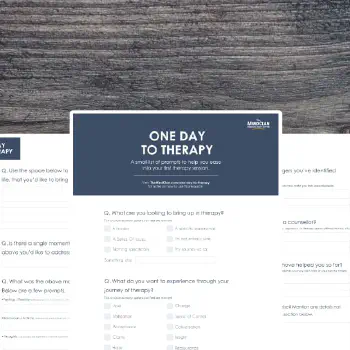For years, we’ve seen various companies, big and small, built on the concept of having remote teams, distributed across locations and sometimes even time zones. Employees have witnessed first-hand the tangible benefits of a remote job, primarily on their physical and emotional health.
Amidst the coronavirus outbreak, we’re seeing an increasing number of employees being compelled to work remotely. While it’s easy (as a 100% remote company ourselves) to point out the positives of a remote working job, it’s also important for us to point out the flags or difficulties that one needs to recognize, so that they can mindfully experience the benefits of working remotely.
You must have received a bunch of resources with preventive and post-care measures related to the pandemic, but we hope to make this post for those who have never experienced a work from home (of this nature) before, and are unsure about what it could entail.
What does a “remote working” job blatantly assume?
- Your house is a safe space, free from physical and emotional trouble.
- You’re living (mostly) by yourself and aren’t sharing your room/house with others.
- You have a physical space with your preferred aesthetics, free from distractions that let you focus on your work.
- You have all the infrastructure you need (fast internet, laptop/desktop, etc) to get your job done.
- You like your job role (at least to a small extent) and are in a line of work that lets you work remotely, using digital tools to sync up with your colleague.
In almost all these cases, empowering yourself with supportive tools (helplines, social workers, official support systems, etc) and communities would come in handy to help you cope with your experience.
What are the flags that one should watch out for?
Just to clear the air. Some of the following flags or responses might apply to your context, and some might not. The important part is to identify the flags that apply to you and work out ways to respond to them. You can choose to respond to only those flags you may relate to. 🙂
We recognize that working from home is a privilege that is not available to everybody. Our hope is to be mindful of this privilege with accountability, yet support each other through this with kindness.
1. Physical Health
Work Posture: We may often work from the sofa or alongside the bed on a typical day off, but this is not helpful if we are working from home as a new practice. When you’re working long hours, ensure that you’re doing it from a chair and desk that’s comfortable for you.
Lack of exercise: It’s no secret that sitting in the same position all day could be detrimental to our physical health. If your circumstance doesn’t let you leave the house, try doing exercises that can work within your context. Many offices these days are prioritizing desk yoga/exercise routines. Go ahead and YouTube some of these!
Hydration: According to Harvard School of Public Health, adequate hydration helps regulate body temperature, keep joints lubricated, prevent infections, deliver nutrients to cells, and keep organs functioning properly. When we’re working from home, we can get drawn into our routines and forget to hydrate ourselves. Using hydration reminder apps is one way to solve this, but we also see value in preemptively filling up bottles of water (2-3 depending on your context) and placing them on your desk at the start of your day. That way, you’d not only ensure that you hydrate yourself, but you also get to know how much you’re hydrating yourself at the end of your typical day.
Sleep: Now, more than ever, we recommend that you don’t delay your body’s clock and sleep when you know your body needs to.
Food Intake: Sitting for long hours and delaying your meals can create acidity or other issues. Working from home can help you prioritize timely meals. If you’re trying to stop over-snacking, try to substitute your snacks for healthier homemade alternatives. If your over-snacking is a result of sporadic sleep and long working hours, you already know the steps you need to cope with it 🙂
Hygiene: Not having to leave home may lead you to re-prioritize your existing rituals. You may bathe later, brush your teeth later, re-use the same clothes, etc. Maintaining small hygiene rituals can help us feel fresher and more focused on tasks.
Eye care: It’s important for us to ensure that we aren’t straining our eyes, as our reliance on digital devices increases. It’s important for us to be mindful of how close our devices are to our eyes, the screen brightness levels, ambient light levels, etc. It’s also further important for us to take routine breaks to cope with eye dryness and irregular blinking. If you’re someone who should be wearing glasses more often but haven’t formed the habit yet, now’s the best time to start!
2. Emotional Health
Personal space: If you’re staying indoors with family, friends or loved ones, the lack of personal space can become overwhelming. If your context allows for it, try switching rooms/work areas, speaking about your needs to the people living with you, leaving the house for short walks, or anything that helps you experience some personal time.
Social circles: If you’re someone who enjoys interacting with peers/friends/family, a quarantine might make it hard for you to leave the house or converse with them in the same way. Try creating digital groups, talk via video calls, or put together fun rituals for you to follow with your group online. Companies are already getting creative, and having (consenting) employees sign in for virtual tea and lunch breaks. 😄
Emotional Support: After a while, social distancing might feel increasingly isolating and this is when you should reach out for support. Support from friends, family, peers, professionals, furry friends, anyone who could help you feel less alone.
Digital Reliance: It’s said that the average person checks their phone about 47 times a day. In a post pandemic situation where the divide between our digital and physical lives become more blurry, we urge you to practice digital detoxing or distancing (whatever you’d like to call it) to cope with your experience. Here’s our post to help you with just that.
Prioritizing home tasks: Working from home means that you may want to draw boundaries and reprioritize your home chores. Some ideas could be printing ‘I’m working, don’t enter’ stickers on your door for privacy, promising to do the dishes at night instead, and dividing tasks among house members.
3. Job/Professional Safety
Feeling unsafe: If you’re in a company that’s never gone remote before, moments like these might feel like a never ending test to your credibility/name. Lack of effective communication, toxic work cultures and ineffective processes in some organizations add to the experience. Anxiety and stress about our job security, responsibilities and the future may walk in, each time our phones buzz with news updates. It’s important to notice when the anxiety is getting you to spiral and equip yourself with the tools to cope with it. Check out our last post that spoke about coping with anxiety.
Not knowing when to stop: Our work is demanding, often to a point where we forget our personal needs. If your company/role implies that you constantly have to prove your ‘resourcefulness’, it becomes important to know when to draw boundaries. Take breaks to ensure you aren’t overworking yourself and unintentionally replacing travel fatigue with work fatigue.
4. Other Flags
In a typical work from home setup, companies often put culture handbooks and systems in place to help you overcome most of the flags mentioned above, but it’s important for us to view the current prioritizing of companies moving remote from the lens of the ongoing pandemic and highlight the other flags you may experience.
‘Cabin Fever’ & Feeling ‘Unproductive’: You’re home all day. You may share your physical space with friends or family, and it might feel suffocating. Many remote employees often set designated, separate spots in their house for professional work and personal care and not mix both up in the same space. Some even practice moving furniture around every few weeks to feed in a positive change to their routine. If this does not seem to apply in your context, we’d suggest finding and reaching out to people and communities that could help.
Infrastructure: The world’s top remote working companies provide employees with an allowance to set up their work stations at home, get a faster internet connection or anything that helps them with their work. Some go even further and pay for your co-working space seat if you prefer working alongside people. If your physical company cannot prioritize this, we’d suggest:
Possibly using a portion of your work travel allowance on better amenities at home such as a more comfortable chair, desk plants, lighting etc. (considering you’d be travelling way less now)
Reaching out to neighbors, friends or colleagues to help bridge the gaps you’re experiencing. For instance, if your laptop is slow, an expert might know how to fix it remotely.
We’d want you to know that with a little discipline, a lot of support (from friends, family, colleagues, and our employers) and scope for self-growth, remote work can be a great thing. Some of the world’s biggest companies work remotely, across many time zones, and still get work done.
Don’t let the pandemic cloud your perspective on the effectiveness of remote working. It’s important to know that most remote working cultures take years to build and (hopefully) this pandemic won’t last that long.
Personal care and professional growth can both co-exist. To make remote working happen, all you need is excellent communication, adaptable processes, and supportive bosses, colleagues and clients.
Look at your current remote working circumstance as an opportunity to prioritize yourself, your personal growth and reconnect with parts of yourself that excessive hours of travel had stopped you from accessing.
Look at remote working as a change in mindset that calls for more people centric processes, not a circumstance that calls for ensuring further control.
You got this. Hold on to the hope.































